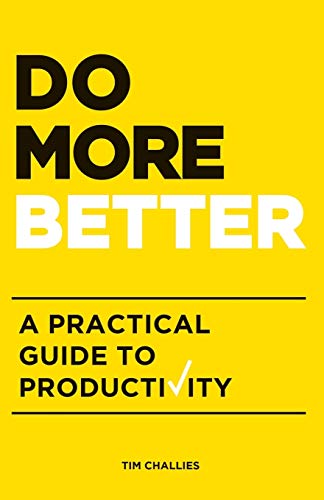Quotes about Laziness
Be sure that you live not idly, but in some constant business of a lawful calling, so far as you have bodily strength. Idleness is a constant sin, and labour is a duty. Idleness is but the devil’s home for temptation, and for unprofitable, distracting musings. Labour profiteth others and ourselves; both soul and body need it. Six days must thou labour, and must not eat “The bread of idleness.” (Prov. 31:13-27.) God hath made it our duty, and will bless us in His appointed way. I have known grievous, despairing melancholy cured and turned into a life of godly cheerfulness, principally by setting upon constancy and diligence in the business of families and callings.
Alan Redpath used to talk to young people about the vital importance of what he called “blanket victory.” He was referring, not to some strategy for overall success, but to the necessity of getting out of bed at a reasonable time in the morning to pursue the business of the day. If a young person could not get victory over his blankets, it was unlikely that he would be self-controlled in many other areas.
Made For His Pleasure, Moody Press, 1996, p. 129. Get this book!
The proud person is Satan’s throne, and the idle man his pillow.
Sad will be the day for every man when he becomes absolutely contented with the life he is living, with the thoughts that he is thinking, with the deeds that he is doing, when there is not forever beating at the doors of his soul some great desire to do something larger, which he knows that he was meant and made to do.
By doing nothing men learn to do evil things. It is easy slipping out of an idle life into an evil and wicked life. Yes, an idle life is of itself evil, for man was made to be active, not to be idle. Idleness is a mother-sin, a breeding-sin; it is the devil’s cushion – on which he sits; and the devil’s anvil – on which he frames very great and very many sins.
Idleness is the time of temptation. An idle person is the devil’s tennis-ball, tossed around by him at his pleasure.
Even on his deathbed, his friends pleaded with John Calvin to refrain from his labors. He replied: “What! Would you have the Lord find me idle when he comes?”
God, harden me against myself, the coward with pathetic voice who craves for ease, and rest, and joy. Myself, arch traitor to myself, my hollowest friend, my deadliest foe, my clog whatever road I go.
God, I pray Thee, light these idle sticks of my life and may I burn for Thee. Consume my life, my God, for it is Thine. I seek not a long life, but a full one, like You, Lord Jesus.
The Christian leader never equates mediocrity with the things of God, but is always committed to the pursuit of excellence.
Twentieth-century man needs to be reminded at times that work is not the result of the Fall. Man was made to work, because the God who made him was a “working God.” Man was made to be creative, with his mind and his hands. Work is part of the dignity of his existence.
Sin brought in sweat (Genesis 3:19), but now, not to sweat increases sin.
A Puritan Golden Treasury, compiled by I.D.E. Thomas, by permission of Banner of Truth, Carlisle, PA. 2000, p. 154.
Simply to say that we are trusting in God instead of acting responsibly is sheer laziness and is a distortion of the doctrine of providence.
Systematic Theology, Zondervan, 1994, p. 335. Used by Permission.
Get this book!
The cause of Christ has been hurt more by Sunday-morning benchwarmers who pretend to love Christ, who call Him Lord but do not His commands, than by all the publicans and sinners. They say they are evangelical but not evangelistic. They glory in being… disciples of the Lowest Common Denominator. They traffic in unfelt truth and refuse to get excited over religion. Their ideal service is “a mild-mannered man standing before a group of mild-mannered people, exhorting everybody to be more mild-mannered”… How many nice, comfortable, lovely people rest smilingly in church pews, their conscience drugged, their wills paralyzed, in self-satisfied stupor, utterly unconscious of their danger while the Lord of the Lampstands warns them, “I am about to spit you out of My mouth.
Idleness gives great advantage to the tempter. Standing waters gather filth.
The devil visits idle men with his temptations. God visits industrious men with His favors.
When we are out of the way of duty, we are in the way of temptation.
It is because of our fallen state that some are lazy and refuse to work, while others are slothful and careless in their work. Sin causes some to view work selfishly – solely from a financial perspective. In other words, they have little regard for the service they may be able to render to God or the glory due to Him. They view work only as a way to get money and thus stuff for themselves.
A life once spent is irrevocable. It will remain to be contemplated through eternity… The same may be said of each day. When it is once past, it is gone forever. All the marks which we put upon it, it will exhibit forever… Each day will not only be a witness of our conduct, but will affect our everlasting destiny… How shall we then wish to see each day marked with usefulness! It is too late to mend the days that are past. The future is in our power. Let us, then, each morning, resolve to send the day into eternity in such a garb as we shall wish it to wear forever. And at night let us reflect that one more day is irrevocably gone, indelibly marked.
The Life of Adoniram Judson, Anson, Randolph & Company, 1883, p. 13-15. Get this book!
If I rest, I rust.
Someone may ask, “But why should I rise early?” To remain too long in bed is a waste of time. Wasting time is unbecoming of a saint who is bought by the precious blood of Jesus. His time and all he has is to be used for the Lord. If we sleep more than is necessary for the refreshment of the body, it is wasting time the Lord has entrusted us to be used for His glory, for our own benefit, and for the benefit of the saints and unbelievers around us… Anyone who spends one, two, three hours in prayer and meditation before breakfast will soon discover the beneficial effect early rising has on the outward and inward man.
Avoid the habits and character of the sluggard’s presumptuous life: He delays beginning a job because he is self-indulgent. “I’m too tired, I’ll do it later” (Proverbs 6:6-10; 26:14). He delays beginning a job because he is dishonest. “I can’t because…” (Proverbs 22:13, 26:3). He delays completing a job because he is lazy (Proverbs 19:24, 26:15). He defends his inaction because he is proud (Proverbs 26:16) (Todd Murray).
Avoid the consequences of the sluggard’s presumptuous life: He suffers unemployment (Proverbs 10:26; 12:24). He suffers hunger (Proverbs 19:15; 20:4). He suffers unfulfilled cravings (Proverbs13:4; 21:25-26). He suffers unnecessary hindrances (Proverbs 15:19; 18:9). He suffers sudden, unexpected poverty Proverbs 20:13; 24:30-34) (Todd Murray).
Slothful and lazy souls never obtain one view of the glory of Christ.
Lazy people are often busy, but they are not busy doing the work that God has given them to do. They are incredibly self-indulgent.
Becoming a Titus 2 Woman, Focus Publishing, 1997, p. 116. Get this book!
No verse of Scripture yields its meaning to lazy people.
It is not that doing nothing is of itself so wicked; it is the opportunity it affords to evil and empty thoughts; it is the wide door it opens for Satan to throw in the seeds of bad things; it is this which is mainly to be feared.
Idleness is the devil’s best friend. It is the surest way to give him an opportunity of doing us some harm. An idle mind is like an open door, and if Satan does not come through it himself, it is certain he will throw something in to arouse bad thoughts in us.
No created being was ever meant to be idle. Service and work is the appointed portion of every creature of God. The angels in heaven work – they are the Lord’s ministering servants, always doing His will. Adam, in Paradise, had work – he was appointed to work and take care of the garden of Eden. And man, weak, sinful man, must have something to do, or else his soul will soon get into an unhealthy state. We must keep our hands busy, and our minds occupied with something, or else our imaginations will soon ferment and breed mischief.
Truly, I believe that idleness has led to more sin than almost any other habit that could be named. I suspect it is the mother of many sins of the flesh – the mother of adultery, sexual immorality, drunkenness, and many other deeds of darkness that I do not have time to name. Let your own conscience say whether I speak the truth or not. You were once idle, and immediately the devil knocked at the door and came in.
Many, I fear, would like glory, who have no wish for grace. They would [want to] have the wages, but not the work; the harvest, but not the labor; the reaping, but not the sowing; the reward, but not the battle. But it may not be.
We secretly wish we could have a “vicarious” Christianity, and could be good by proxy, and have everything done for us. Anything that requires exertion and labor is entirely against the grain of our hearts. But the soul can have “no gains without pains”… To be a Christian it will cost a man his love of ease.
God has hidden every precious thing in such a way that it is a reward to the diligent, a prize to the earnest, but a disappointment to the slothful soul. All nature is arrayed against the lounger and the idler. The nut is hidden in its thorny case; the pearl is buried beneath the ocean waves; the gold is imprisoned in the rocky bosom of the mountains; the gem is found only after you crush the rock which encloses it; the very soil gives its harvest as a reward to the laboring farmer. So truth and God must be earnestly sought.
When it comes to the slothful, the Bible pulls no punches. It is a hideous offense that discredits our testimony, displays our selfishness, dismisses our spiritual responsibilities and mocks the nature of our Creator to whom we are to emulate.
Naturally, the sluggard begins the day by staying in bed when he should be starting his work. Proverbs 6:9, “How long will you lie down, O sluggard? When will you arise from your sleep?” Next the sluggard will invent any reason to prevent working. Proverbs 22:13, “The sluggard says, ‘There is a lion outside; I shall be slain in the streets!” Rather than beginning his work he simply pacifies himself with his preposterous excuses and return to his bed. Proverbs 26:14, “As the door turns on its hinges, so does the sluggard on his bed.” Once the sluggard finally rolls out of bed, he is even too lazy to provide for his needs to survive. Proverbs 19:24, “The sluggard buries his hand in the dish, and will not even bring it back to his mouth.” Though the sluggard may be too lazy to eat, often, due to his slothfulness, he has no food to eat. Proverbs 20:4, “The sluggard does not plow after the autumn, so he begs during the harvest and has nothing.” Eventually, his laziness leads to a lack of food, a lack of food to deteriorated health, and deteriorated health to death. Proverbs 21:25, “The desire of the sluggard puts him to death, for his hands refuse to work.” His neglect of responsibilities is evident in his health, but also in the care of his house. Proverbs 24:30-31, “I passed by the field of the sluggard, and by the vineyard of the man lacking sense; and behold, it was completely overgrown with thistles, its surface was covered with nettles, and its stone wall was broken down.” His life is simply a selfish pursuit of his laziness. Though he may wish a nobler lifestyle, steps are never taken to accomplish his goal because he’s a dreamer. Proverbs 13:4, “The soul of the sluggard craves and gets nothing.” He thinks his life is okay, but unfortunately he is greatly deceived. Proverbs 26:16, “The sluggard is wiser in his own eyes than seven men who can give a discreet answer.” What the sluggard really needs is stern rebuke of wisdom. The slug is compared to another animal, one that is very industrious. Proverbs 6:6-11, “Go to the ant, O sluggard, observe her ways and be wise, which, having no chief, officer or ruler, prepares her food in the summer, and gathers her provision in the harvest. How long will you lie down, O sluggard? When will you arise from your sleep? ‘A little sleep, a little slumber, a little folding of the hands to rest’ – and your poverty will come in like a vagabond, and your need like an armed man.”
When I speak of mediocrity, I am referring to the attitude of half-hearted effort. It might not be outright laziness, but it is a mentality that feels comfortable in giving forth something less than our very best. It’s the “do what it takes to get by” or “that’s good enough” or “whatever” way of thinking. It’s a state of living that actually becomes content with a mindset of failure. I believe as a culture, the “commitment to excellence” in our personal lives is rapidly decreasing.
Why do we give our efforts in the church a pass when it comes to excellence? Are we hypercalvinists? Hey, just get the biblical part right and nothing else will matter. Are we all about just applauding good effort even when the product produced is an outright embarrassing representation of Christ? Maybe that individual is not the most gifted for the job. Are we erecting a double standard? We take the “real world” seriously and anything goes in the “spiritual world.” Are we settling for second best because after all, “it’s better than nothing?” Are we grieving the Spirit in assuming that He will always “bless our mess?” Are we not getting paid so we think we can kick it back a bit? Are we using grace, God’s acceptance of us, as an excuse to give Him halfhearted efforts?
Now I know there are many dangers of striving for excellence. After all, haven’t we learned that Satan will take anything we do for good and seek to bring forth evil. We have been been taught, 2 Corinthians 2:11, to not be “ignorant of his schemes.” I know if we are not careful, a pursuit of excellence can lead to pride whereby we look down on others or desire to draw personal attention to ourselves or seek to be man-pleasers. I know it can lead to a reliance on our own strength and not God’s strength. I know it can lead to misplaced goals that believe the product is more important than the spiritual goals it aims to produce. I know it can lead to misplaced trust that excellence alone can somehow achieve God’s purposes. And I know it can lead to misplaced methods, looking to worldly techniques more than Scripture. I know all of these and now you do as well, but we can’t operate in fear as an excuse to excuse the behavior expected of us from the Lord.
Mediocrity is a sin not unlike the other sins we battle as Christians. And mediocrity, like all sins, begins in our hearts (Jas. 1:14). Mediocrity is one of those sins that we can’t blame on others. It starts with the sin of pride deep within us that spills over to indifference or selfishness and then reveals itself in mediocrity. Overall, it is a lack of faith in God. It is a lack of rightly understanding and then believing and then being overwhelmed by the greatness of our God. It is the failure to be amazed by God’s excellence. Simply put, less-than-excellent efforts are a result of not admiring a nothing-but-excellent God.
If you are idle in Christ’s work, you are active in the devil’s work.
Work is always healthier for us than idleness; it is always better to wear out shoes than sheets.
The most likely man to go to hell is the man who has nothing to do on earth. Idle people tempt the devil to tempt them.
One of the most serious threats to the human spirit is boredom. Boredom is the breeding ground for wickedness. Bored people are easy targets of the flesh and the Devil. It is like putting a bull’s-eye on your chest with a sign: “Tempt me. I’m easy!” Why? Because boredom is contrary to the natural, God-given impulse for fascination, excitement, pleasure, and exhilaration.
Copied from: Pleasures Evermore: The Life-Changing Power of Knowing God by Sam Storms, © 2000, p. 50. Used by permission of NavPress – www.navpress.org. All rights reserved. Get this book!
This [boredom] is why people are so prone to an addictive lifestyle. Many people who fall into sinful addictions are people who were once terminally bored. The reason why addictions are so powerful is that they tap into that place in our hearts that was made for transcendent communion and spiritual romance. These addictive habits either dull and deaden our yearnings for a satisfaction we fear we’ll never find or they provide an alternative counterfeit fulfillment that we think will bring long-term happiness, counterfeits like cocaine, overeating, illicit affairs, busyness, efficiency, image, or obsession with physical beauty. They all find their power in the inescapable yearning of the human heart to be fascinated and pleased and enthralled. Our hearts will invariably lead us either to the fleeting pleasures of addiction or to God.
Copied from: Pleasures Evermore: The Life-Changing Power of Knowing God by Sam Storms, © 2000, p. 51. Used by permission of NavPress – www.navpress.org. All rights reserved. Get this book!
Most of the world insisted on excellence; that’s how you succeeded in life. But the church was content with mediocrity. Individual Christians weren’t necessarily content with mediocrity, of course; in their particular jobs, they could be just as outstanding as their peers. But in a grace-filled church arena-in ministry, music, literature, and the pursuit of understanding-there seemed to be an unwritten rule that whatever we do in the name of the Lord is good enough, even when it isn’t our best.
Be an uncommon Christian. Average Christian is “half way up between the valley and the peak…halfway where we used to be and where we ought to be.” When we hear the call to take up the cross and follow toward the hills we begin to bargain with God like a huckster. What will it cost me in work? What will it cost me in money? What will it cost me in relationships? Is it safe? Is it convenient? Is it fun? Is it popular? – You’ll never be more than the common Christian until you give up your own interests and cease to defend yourself and put yourself in the hands of God and let Him alone. We want to help God out. No, no give yourself to God. Turn yourself over to God and say, “Father, I’m sick of being a common Christian. I’m sick of this mediocrity. I’m sick of being half-way up to where I want to be. I’m sick of seeing other happy Christians and I’m not. I’m weary, God, of the whole thing and I want to go on. I want to know You.”
Excellence is, in fact, a relationship. There is only One is truly and perfectly excellent. He alone is the sum and definition of what excellence is and does. So the one who is excellence, in His grace, came to you when you were in a state of anything but excellence, and by grace offered you the promise of actually becoming a partaker of His divine nature. He then connects you to purposes and goals way higher, way grander and more glorious than you would every have sought for yourself… Your hope of ever being excellent in His eyes and doing what is excellent in His sight is found in your relationship to Him and in His grace that not only forgives and accepts but radically transforms. And He calls and empowers you to display His excellency and the excellency of His grace. It is only this excellency that has the power to free us from the false excellency of human pride and the mediocrity that results when we are okay with ourselves and our world just the way they are.
Mediocrity by Paul David Tripp taken from Dangerous Calling by Paul David Trip copyright 2012, Crossway Books, a division of Good News Publishers, Wheaton Illinois 60187, www.crosswaybooks.org, p. 142-143.
Mediocrity is not a time, personnel, resource, or location problem. Mediocrity is a heart problem. We have lost our commitment to the highest levels of excellence because we have lost our awe. Awe amnesia is the open door that admits mediocrity. Awe of God is fear-producing, inspiring, motivating, convicting and commitment producing. There is no replacement for this.
Mediocrity by Paul David Tripp taken from Dangerous Calling by Paul David Tripp copyright 2012, Crossway Books, a division of Good News Publishers, Wheaton Illinois 60187, www.crosswaybooks.org, p. 141.
The moment slothfulness begins, that moment dangers stand thick about us.
Lord grant that the fire of my heart may melt the lead in my feet.
Idleness tempts the devil to tempt.
A Puritan Golden Treasury, compiled by I.D.E. Thomas, by permission of Banner of Truth, Carlisle, PA. 2000, p. 154.
A true faith in Jesus Christ will not suffer us to be idle. No, it is an active, lively, restless principle; it fills the heart, so that it cannot be easy till it is doing something for Jesus Christ.
There is not a thing on the face of the earth that I abhor so much as idleness or idle people.

































